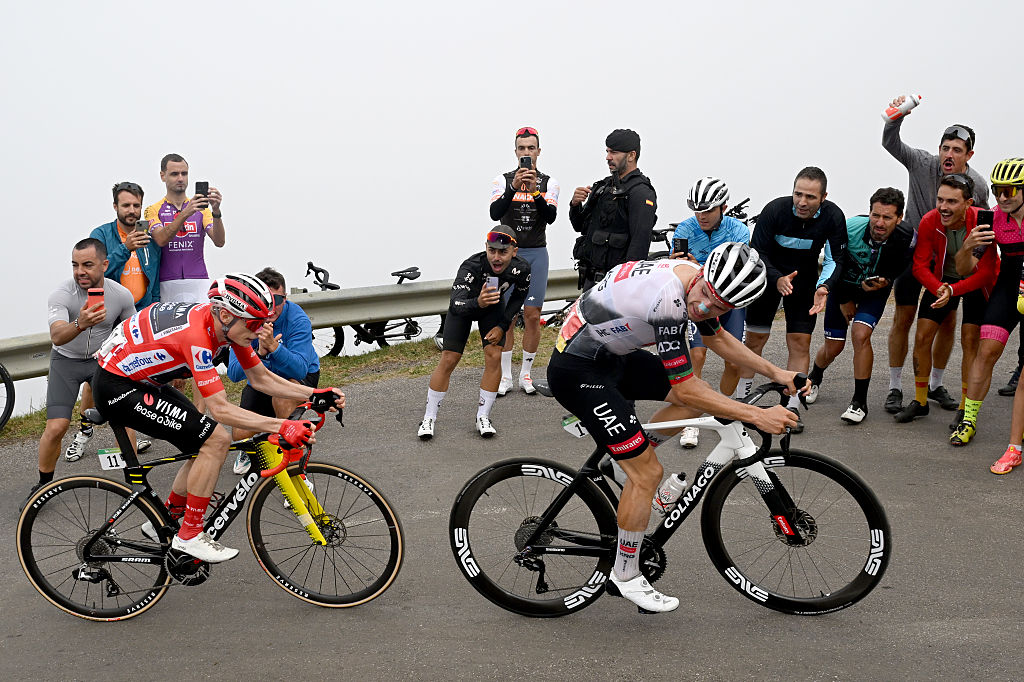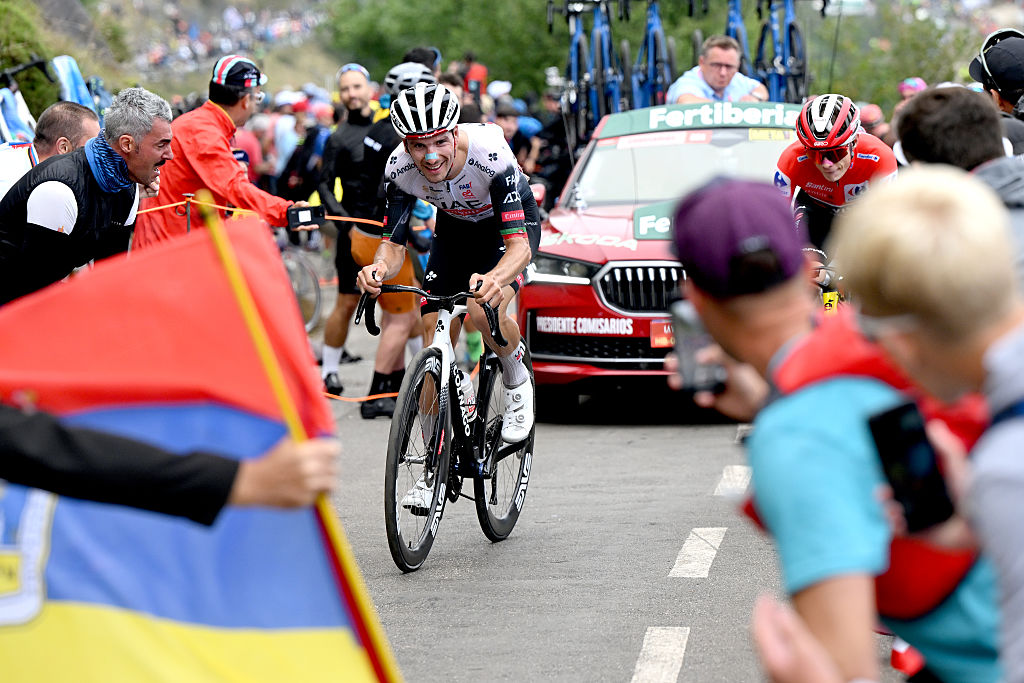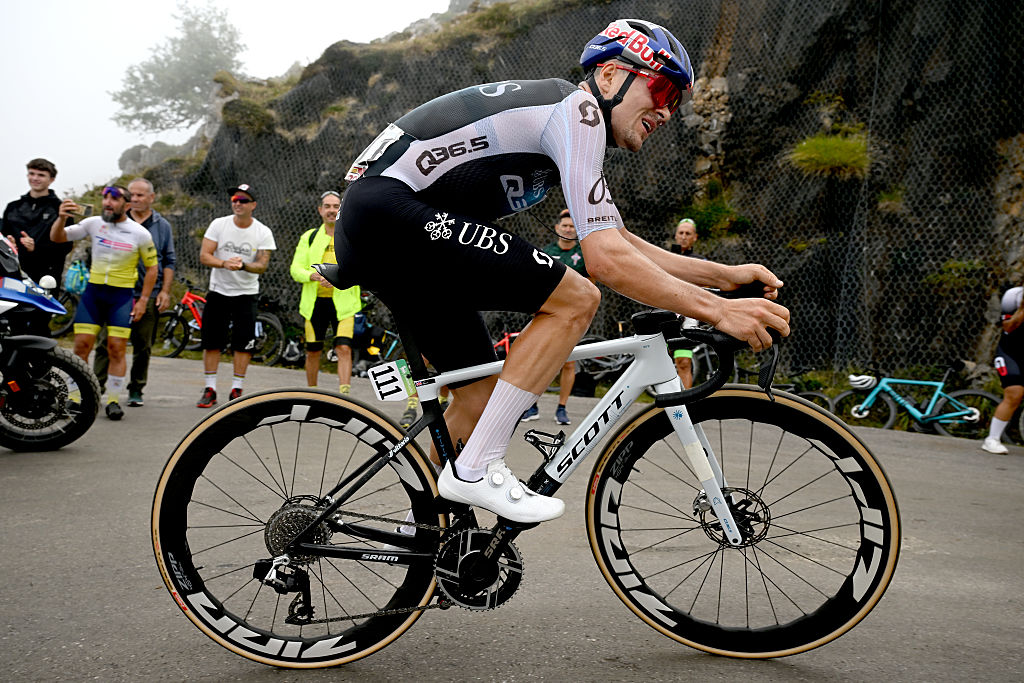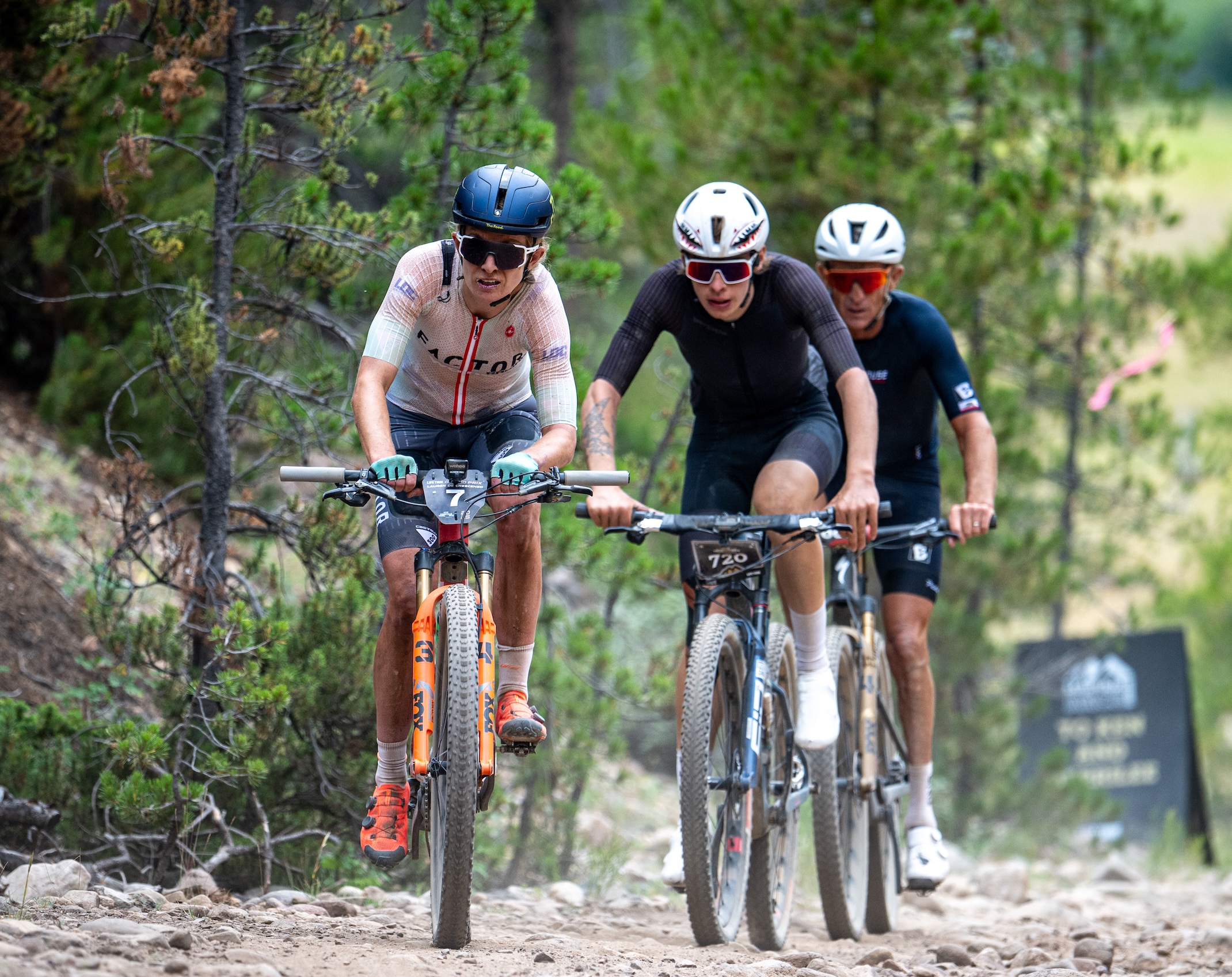The Jonas Vingegaard vs João Almeida battle is fifty-fifty going into Vuelta a España final week – Philippa York analysis
Philippa York breaks down the last week of racing, and what it all means for the GC battle brewing in Spain

The latest race content, interviews, features, reviews and expert buying guides, direct to your inbox!
You are now subscribed
Your newsletter sign-up was successful
At the beginning of the second week of the Vuelta a España, I thought that Jonas Vingegaard was in the perfect position to secure overall success.
With Torstein Træen and Bahrain Victorious having taken some of the responsibility for leading the race, no podium duties for a while and a stage win in the bag, his stress levels were as low as they possibly could have been in a Grand Tour. Three hilltop finishes with the Angliru as the main attraction the middle of this Vuelta looked like a chance for order to be restored and the foundations of a race winning lead established by the Dane.
UAE-Team Emirates-XRG and their leader João Almeida were facing a period of inner turmoil with Juan Ayuso's departure announced on the rest day, and critique of race tactics and team politics only adding to their problems.
Everything looked set for Vingegaard to take control, trample his rivals and have everything settle down into an orderly procession towards Madrid – or somewhere near there, should the rumours of more protest trouble disrupt the traditional finale in the capital.
The resumption of hostilities on stage 10 did nothing to change the feeling that UAE hadn't quite decided what they were focusing on. They had Mikkel Bjerg and Jay Vine, the eventual stage winner, in the escape, and Ayuso doing a little bit of work for Almeida on the climb to the finish, but nothing to put Vingegaard in any difficulty.
On the Bilbao circuit on stage 11, Tom Pidcock and Vingegaard surprised an isolated Almeida on the final Alto de Pike climb and took ten seconds on GC on the truncated stage – and could have taken more in bonuses if the stage had run to completion.
The next day it was the same situation, Vine with Ayuso and Marc Soler in a giant breakaway group and Almeida back in the peloton. This time it was Juan Ayuso taking the stage spoils, contributing to yet more UAE success, but it was looking like individual wins and the mountain classification were more important than the GC.
The latest race content, interviews, features, reviews and expert buying guides, direct to your inbox!
The Angliru turned all that speculation on its and the race's head. Visma-Lease a Bike controlled the escapees to try to set up a Vingegaard victory but Ayuso, Soler and Vine took over at the bottom of the feared climb and it became clear that João Almeida – and his GC ambitions – was indeed the team's focus.
I don't think I've ever seen the Portuguese rider look so strong as on the Angliru.
Normally, he pays for his aggression by being countered as soon as he shows signs of tiring, however on this occasion that didn't happen.
Vingegaard was at his limit more times than he would like to have admitted and though he stayed on the wheel of his rival, the strength Almeida showed must have woken him up to the idea that winning the Vuelta wasn't going to be a formality.

UAE pulled themselves together at the right time and the speculation of what had happened previously is over. It might seem unorthodox in terms of daily tactics, but there's no arguing that when they were required to be a team, they showed up.
Of course, Marc Soler winning the day after Angliru added to the strange feeling that the team's choices were in fact the right ones. Put men in the escape, put pressure on Visma if possible, and if there's no cause for concern on GC then go back to the stage winning tactics.
Almeida seems to be confident enough to mainly survive by himself which is just as well because, ridiculously, Jay Vine infiltrated the escape again on stage 15 to take the maximum mountain points and extend his lead in that classification,
Thankfully, Mads Pedersen finally won on Sunday to break the UAE domination, but four wins out of five days racing explains why they are heading towards breaking the number of wins by a team in a season record.
There's going to be many squads which don't get much out of the race despite being part of the daily battle, like Movistar who have had riders in the escapes and they have come up short.
They used to be guaranteed some success at their home tour, however, the best they've got so far is two second places. So near yet so far for the Spanish team.
What next for the GC battle?
The GC situation on the second rest day is looking interesting because nothing is decided for the win and if we accept that Vingegaard and Almeida are the two strongest and contending for the victory, then the fight for that last spot on the podium is equally close.
I thought Tom Pidcock and the Angliru was going to be a climb too far – and too steep – but he did really well, probably better than his nearest challenger Jai Hindley expected.
That would explain the Red Bull-Bora-Hansgrohe attack the next day when Pidcock was struggling on the climb to Lagos de Somiedo. Clearly Giulio Pellizzari is going to be sacrificed to aid Jai Hindley and that might be a problem for the Brit in the final week who doesn't have much help in the mountains.
Still, he's playing with the established GC riders here and so far he's present and considered part of their group, and remains third overall.

I'm not surprised to see the next generation of climbers showing their talents at this year's Vuelta.
Matthew Riccitello (Israel-Premier Tech) and Junior Lecerf (Soudal-QuickStep) are in the top 10, with the former looking to be the more consistent of the two. Giulio Pellizzari is still strong but he might well lose his grip on the white jersey if the Pidcock/Hindley battle needs him to commit far from the finish.
Felix Gall (Decathlon AG2R La Mondiale) has had a few moments where he's been exposed, strangely enjoying the steeper climbs more than the longer ones, so he's going to be blowing hot and cold for the final six stages. He's going to hate the Valladolid TT too.
Speaking of which, Vingegaard will take time from Almeida there, however what it costs him could well be a factor on the days to come, which feature a lot of long climbs. Mountains that suit Almeida perfectly.
Far from being a Vingegaard certainty that many foresaw at the start in Turin two weeks ago, this Vuelta is not over.
Whether pro-Palestinian protests curtail the final stage or not, with three proper mountain stages to get through before Madrid and a close GC battle brewing, this final week promises to be spectacular.
Subscribe to Cyclingnews for unlimited access to our 2025 Vuelta a España coverage. Our team of journalists are on the ground from the Italian Gran Partida through to Madrid, bringing you breaking news, analysis, and more, from every stage of the Grand Tour as it happens. Find out more.
Philippa York is a long-standing Cyclingnews contributor, providing expert racing analysis. As one of the early British racers to take the plunge and relocate to France with the famed ACBB club in the 1980's, she was the inspiration for a generation of racing cyclists – and cycling fans – from the UK.
The Glaswegian gained a contract with Peugeot in 1980, making her Tour de France debut in 1983 and taking a solo win in Bagnères-de-Luchon in the Pyrenees, the mountain range which would prove a happy hunting ground throughout her Tour career.
The following year's race would prove to be one of her finest seasons, becoming the first rider from the UK to win the polka dot jersey at the Tour, whilst also becoming Britain's highest-ever placed GC finisher with 4th spot.
She finished runner-up at the Vuelta a España in 1985 and 1986, to Pedro Delgado and Álvaro Pino respectively, and at the Giro d'Italia in 1987. Stage race victories include the Volta a Catalunya (1985), Tour of Britain (1989) and Critérium du Dauphiné Libéré (1990). York retired from professional cycling as reigning British champion following the collapse of Le Groupement in 1995.
You must confirm your public display name before commenting
Please logout and then login again, you will then be prompted to enter your display name.

